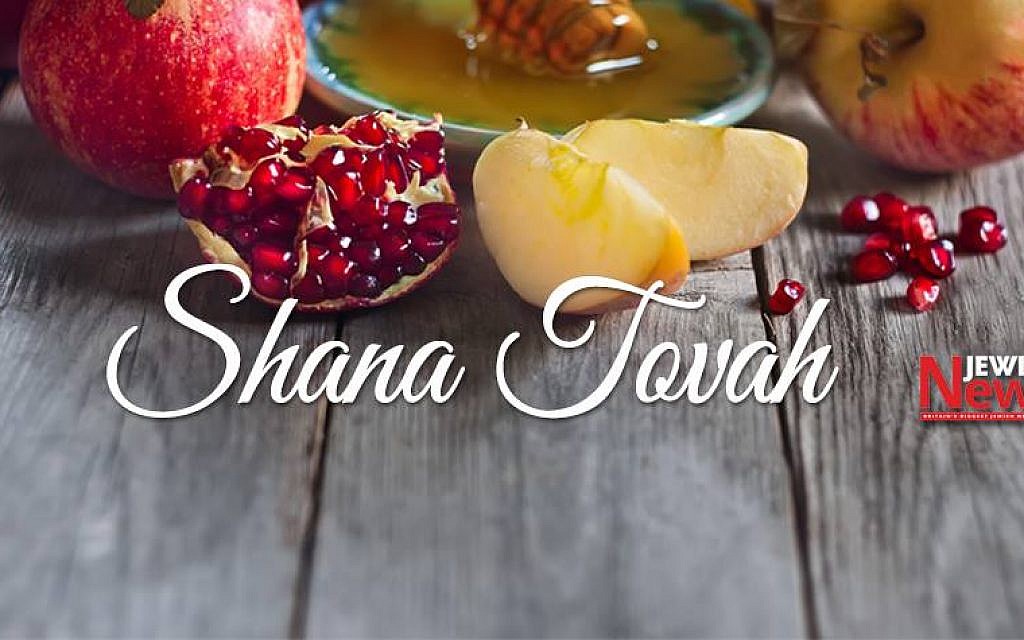Get interesting information about Do You Say Happy Rosh Hashanah To A Jewish Person, this article is specially curated for you from various reliable sources.

Do You Say “Happy Rosh Hashanah” to a Jewish Person?
As a child, I grew up in a diverse neighborhood, immersed in a vibrant mosaic of cultures and traditions. Among my friends were several Jewish families, and as the High Holidays approached, I often wondered what the appropriate greeting was. Should I wish them a “Merry Rosh Hashanah” or simply extend a heartfelt “Happy New Year”?
This childhood curiosity sparked a lifelong fascination with the intricacies of cultural etiquette. As I embarked on a journey of learning and exploration, I discovered that the answer to my childhood question was not as straightforward as I had initially imagined. In this article, we will delve into the nuances of this topic, examining the multifaceted nature of Rosh Hashanah and exploring the most appropriate ways to extend well wishes during this significant time.
Rosh Hashanah: A Celebration of New Beginnings and Reflection
Rosh Hashanah, the Jewish New Year, is a time of profound spiritual significance, marking the beginning of the High Holidays, a period of introspection and renewal. It is a day of reflection, forgiveness, and renewal, as individuals reflect on their past year’s actions and strive to make amends for any wrongs committed.
Traditionally, Rosh Hashanah is observed over two days, beginning on the first day of the Hebrew month of Tishrei. It is customary to attend synagogue services, recite special prayers, and participate in symbolic rituals, such as the sounding of the shofar, a ram’s horn, to mark the start of the new year.
The Appropriate Greeting: “Happy New Year” or “Shanah Tovah”?
When greeting a Jewish person during Rosh Hashanah, the most appropriate phrase to use is “Happy New Year.” While it may seem intuitive to extend a “Merry Rosh Hashanah” wish, this is not a common expression within the Jewish community. Instead, the traditional greeting of “Shanah Tovah” (Hebrew for “Good Year”) is the most widely recognized and appreciated way to convey well wishes.
The greeting of “Shanah Tovah” encompasses the essence of Rosh Hashanah, expressing a hope for a year filled with blessings, good health, and prosperity. It is a concise yet meaningful way to acknowledge the significance of the holiday and extend your best wishes to your Jewish friends, colleagues, or neighbors.
Additional Tips for Extending Well Wishes
In addition to choosing the appropriate greeting, there are several other tips to keep in mind when extending well wishes during Rosh Hashanah:
- Be respectful: Remember that Rosh Hashanah is a time of great spiritual importance for Jewish people. Be respectful of their traditions and observances.
- Be sincere: Your well wishes should come from the heart. Take the time to express your genuine hope for a good year ahead.
- Consider personalizing your greeting: If you have a close relationship with the person you are greeting, you can personalize your well wishes by mentioning something specific, such as a recent accomplishment or a shared experience.
By following these guidelines, you can ensure that your Rosh Hashanah well wishes are both appropriate and meaningful, reflecting your respect for the holiday and your desire to extend your best wishes for the year ahead.
Frequently Asked Questions
- Q: Why is Rosh Hashanah referred to as the Jewish New Year?
A: Rosh Hashanah marks the beginning of the Jewish High Holidays, a period of introspection and renewal. It is a time to reflect on the past year and make amends for any wrongs, as well as to set intentions for the year ahead.
- Q: What is the significance of the shofar?
A: The shofar is a ram’s horn that is blown during Rosh Hashanah services. Its sound is a call to repentance and introspection, reminding us of our obligations to God and to each other.
- Q: What are some common Rosh Hashanah foods?
A: Traditional Rosh Hashanah foods include apples and honey, symbolizing a sweet new year; round challah bread, representing the cycle of the year; and pomegranates, signifying abundance and fertility.
Conclusion
Rosh Hashanah is a time of great spiritual significance for Jewish people, a time to reflect on the past and embrace the future with hope and renewal. When extending your well wishes during this special time, remember to use the appropriate greeting of “Happy New Year” or “Shanah Tovah,” and be mindful of the tips and guidelines discussed in this article. By doing so, you will show your respect for the holiday and convey your genuine wishes for a year filled with blessings and prosperity.
As you learn more about the diverse customs and traditions that make up our global community, you’ll find that even the most seemingly simple questions, like “Do you say ‘Happy Rosh Hashanah’ to a Jewish person?” can lead to fascinating insights into different cultures. I encourage you to continue your exploration, always approaching new experiences with curiosity and a willingness to learn.

Image: jewishnews.timesofisrael.com
You have read Do You Say Happy Rosh Hashanah To A Jewish Person on our site. Thank you for your visit. We hope you benefit from Do You Say Happy Rosh Hashanah To A Jewish Person.